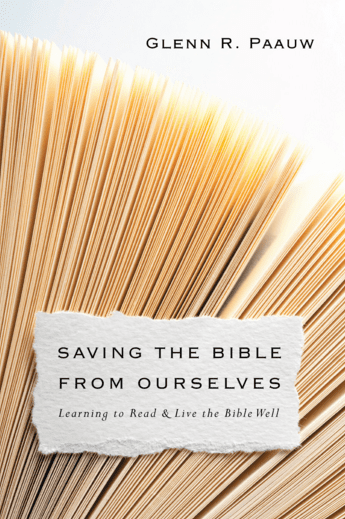 Some Christians do treat the Bible as a lawbook (I wrote about this in Blue Parakeet) and in Brian McLaren’s A New Kind of Christianity a challenge was given to treating the Bible as a constitution. By which Brian mostly meant a lawbook, but I have been reading Jack Balkin’s book, Living Originalism (Harvard, 2011), and I wonder if treating the Bible as our “constitution” is a problem.
Some Christians do treat the Bible as a lawbook (I wrote about this in Blue Parakeet) and in Brian McLaren’s A New Kind of Christianity a challenge was given to treating the Bible as a constitution. By which Brian mostly meant a lawbook, but I have been reading Jack Balkin’s book, Living Originalism (Harvard, 2011), and I wonder if treating the Bible as our “constitution” is a problem.
To begin with, “constitution” is more than a lawbook. (And Brian focuses on the legal side, and he also focuses on practicing the Bible as a legal constitution and he advocates the model of the Bible as a “library,” which is a salutary category.) Even more, the US Constitution is alive.
So today a few thoughts from my reading of Balkin’s book.
Do you think we should see the Bible as our “constitution”? What do you think of seeing the gospel as the “framework” that shapes faithfulness to the gospel in churches? What does this approach to the Bible say about ongoing development of the Bible or of the value/authority of ongoing interpretation? Perhaps another way is to ask this: If the Bible is/contains our constitution, what “part” (or whole?) is the constitution? The Bible as a whole, the NT, Jesus, Paul, or the gospel itself?
And, of course, I welcome comments on whether or not you like “living constitutionalism” — that is, that originalism and ongoing adaptations and expansions are welcome. [But I suspect there is some analogy here with the Bible. Agree? I’m open to that discussion too.]
First, Balkin’s approach to the US Constitution is opposed to Justice Antonin Scalia’s original intent and expectations-originalism. (Law professors, folks, trade in lots of finely-defined terms, so be patient; I promise this will make sense and be of help to Bible reading.) That is, the aim of the court is to interpret the original intent, not of the framers but of the text itself, and to see the law’s interpretation contained by how it was originally applied. He thinks Scalia is — in Scalia’s own terms — a “faint-hearted originalist” (8).
Second, Balkin sees that approach to the US Constitution to be what he calls “skyscraper originalism.” That is, the US Constitution is more or less complete as it is; judges are to hold citizens in constraint to that Constitution. Balkin’s approach is “framework originalism.” Balkin thinks the approach to law is called “text and principle” and it requires both fidelity to the original text and open to constitutional construction. That is, the US Constitution intends and enables and empowers interpreters to get to the bottom of the text and to carry that text further in each generation. The US Constitution mentors society to live according to its light.
Third, the US Constitution is a framework for politics in our culture. Each generation must live out the original Constitution with fidelity to the text. The Constitution has three kinds of text: determinate rules (for all time; as in the President must be 35 yrs old), standards (“no unreasonable searches” — which have to be discerned by the citizenry and courts), and principles (which are more open-ended but the fundamental textual principle that must be used).
Fourth, society’s changes — like suffrage for women, the New Deal, the civil rights movement — create conditions in which the US Constitution must now take up abode and speak all over again in new ways. Genuine achievements in culture yield new achievements in the court as it finds adequate basis in the US Constitution (would to God we could do more of this for gun laws in the USA). So he’s proposing a bottom-up approach to living originalism.
Fifth, at the heart of interpretation is not just the court and the judges; at the heart is the citizenry.
Sixth, the original expected application of the US Constitution is not binding; but the Constitution itself is. Law is about ongoing interaction of culture with the Constitution and as such it builds up a history of interpretation that becomes interpretive tradition on how to apply law.
I now make my case that the Bible can be seen as a “constitution” (not as lawbook) and that perhaps framework originalism is a worthwhile hermeneutical approach to Bible reading:
1. I propose to think with you that the gospel — see King Jesus Gospel — is the constitution. It set in motion attempts to live out the gospel in various contexts, those attempts being the NT books. (We can expand this to include non-books like liturgy, etc, of course, but for now we’ll stick to books in the NT.)
2. This would mean the New Testament itself is the build up of “constitution construction,” or as instances of applying the original gospel to specific conditions. That is, the gospel is the framework and the New Testament is filling out of that framework.
3. This would then mean that each NT book is an instance of the gospel (a) in a particular context/setting, (2) by an apostolic witness to the gospel, and all of this occurs (3) as part of the Israel-Jesus-Church Story, thereby making the “constitution construction” to include the Old Testament as instances and preparations of the gospel.
I am of course dancing on the floor of the lawyers; if points need clarification, speak up… but my intent today is to explore the Bible as constitution, not to take a stand on legal issues.











